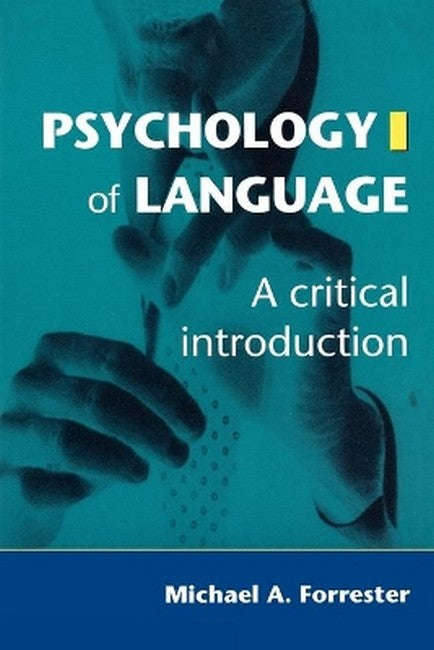Michael A Forrester is a Senior Lecturer in Psychology at the University of Kent, Canterbury. He is the author of The Development of Young Children's Social Cognitive Skills (1992).
Request Academic Copy
Please copy the ISBN for submitting review copy form
Description
Introduction Language Structure and the Significance of Recursion Semantics The Concept of Meaning Deixis The Interface between Language and Social Interaction Conversational Analysis and Accountability in Everyday Talk Processes and Procedures in Conversational Interaction Power Relations in Language Sign Systems and Social Semiotics The Role of the Reader in Text Interpretation Writing and the Construction of Narrative Text Post-Modern Psychology and Language Discourse Analysis and Social Psychology
`Forrester's book succeeds in outlining a fuller psychology of language, one that foregroundss the communication functions of language. I hope it spurs other works of that kind' - Theory and Psychology `An attempt to reconcile the different facets of the contemporary study of the psychology of language... this is a daring attempt to point out the diversity and lurking disintegration of the field of psychology of language...Throughout the endeavour, the suggestion is made that the psuchology of language would profit from a focus on conversation in which researchers immerse themselves into the language scene instead of looking at it from a distance...The book is appealing in its attempt to approach the psychology of language from a wide range of often controversial viewpoints...Forrester's book is a book of reflection. The work constitutes a nice addition to the alternative book library of the advanced graduate student or academic' - Contemporary Psychology `Forrester's book provides an account not of the field of psycholinguistics as traditionally conceived, but rather of the author's vision for its future development... Forrester argues that traditional psycholinguistics, having been dominated by cognitivism and structuralism, has little to offer to those who aim to understand language as communication. To rectify this, the psychology of language should extend its domain of inquiry and become more closely integrated with alternative approaches to the study of language, both from other areas of psychology and from other disciplines... The scope of Forrester's book is impressively wide... there is a strong emphasis throughout on the philosophy, history and sociology of science... His book can be likened to a large-scale map with a few inset boxes containing smaller-scale plans - designed for the traveller who is considering going to neighbouring lands and wants to get a flavour of what it will be like there. For this reason, the book is well suited to senior undergraduates, postgraduates and researchers, particularly those who already have a sound knowledge of one field of language study and are interested in exploring allied fields. Such readers will be likely to find Forrester's book a thought-provoking, challenging introduction to alternative theoretical and methodological approaches. It would, for example, make an excellent resource for discussion in honours tutorials/seminars... Forrester presents a persuasive case for the need to integrate diverse approaches to the study of language, and he successfully highlights many of the gaps and potential conflicts between these' - British Journal of Psychology

